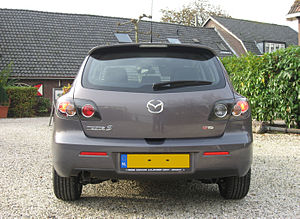What is a totting up ban and can you lose your licence?

A minor driving offence can lead to big problems if you are in danger of “totting up” more than 12 points on your licence, and six points if you are a newly qualified driver.
If you are in danger of totting up you could be facing a six-month driving ban so you should seek legal advice and start preparing for your day in court.
A driving ban can be devastating, especially if you use your car for work or to get to work, for hospital appointments or to visit family and friends in need. In the worst case scenario, a ban may lead to the loss of a job.
But it doesn’t have to be the end of the road when points on your licence tot up.
What is a totting up ban?
A totting up ban is when you accumulate 12 or more penalty points on your driving licence within three years, often resulting in a minimum driving ban of six months, but could be extended. It should also be noted that as a newly-qualified driver you only need to accrue six points. You are considered a newly-qualified driver for the first two years after passing your test.
You will then have a court hearing arranged whereby they will decide on the length of your disqualification, depending on the severity of the offences you have committed.
Can I fight a totting up ban?
While the law may look cut and dried, that a driver who reaches 12 points (six for a newly qualified driver) will be disqualified for six months, that is not always the case.
If you are in danger of totting up, assuming you are guilty of the alleged offence, you will be summoned to court to have your case heard. Your solicitor will tell you what to expect in court and, depending on your individual circumstances, may use a legal argument known as “exceptional hardship” to protect the validity of your licence.
What is exceptional hardship?
If magistrates hearing your case accept that, if banned, you or others would suffer exceptional hardship, they are able to exercise discretion and waive the automatic ban.
Many people believe exceptional hardship has to be suffered by someone other than yourself, but this is not the case. You can be the only person affected by the potential totting up ban and still have grounds to make a successful exceptional hardship application.
The law does not specify exactly what constitutes exceptional hardship, but there are many scenarios that could save your licence, the most common being when a driving ban will lead to financial hardship, usually due to the loss of a job.
Other examples include the company you work for suffering financial hardship if you were unable to perform your driving duties, and you suffering personal difficulties due to the impact of the ban on your mental health.
If your points are totting up you will need to brief your solicitor fully if you think that you, or anyone else, will suffer more than could be “reasonably expected” if you were to be disqualified.
How often can you argue exceptional hardship?

You can only use an exceptional hardship mitigation once in every three-year period. When you come to argue your case again, you cannot use the same reason, so if you said you would lose your job last time around, this time you will have to provide another plausible reason to keep your licence after totting up points.
How long do points remain on a driving licence?
From the date of conviction your penalty points will remain on your driving licence for four years, despite only being valid for three.
If you still have points on your licence when facing a totting up ban, the court will take into account the number of penalty points that were valid on your licence at the time the driving offence was committed.
Do I need to tell my insurer about the points on my licence?
The Road Traffic Act 1998 stipulates you must declare any penalty points on your driving licence to your insurance company. Both current and prospective insurers must be made aware of any motoring offences, as it may impact your quote.
How might penalty points impact my insurance quote?
Insurance providers set their premiums based on the risk represented by you, your vehicle and any other named people who may have permission to drive it. The risk reflects how likely you are to make a claim – having points on your licence could increase that perceived risk. The same may be true if you have criminal convictions.
Adrian Flux specialises in insurance cover for convicted drivers. We will assess your insurance needs and do our very best to beat your best quote. Call 0800 369 8590 for a fast no obligation quote, or book a callback at a time that’s more convenient to you.






